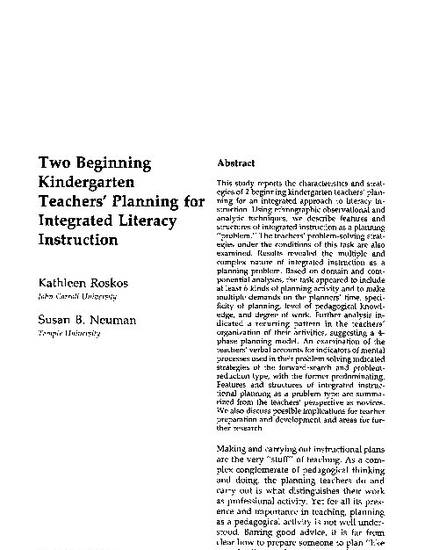
This study reports the characteristics and strategies of 2 beginning kindergarten teachers' planning for an integrated approach to literacy instruction. Using ethnographic observational and analytic techniques, we describe features and structures of integrated instruction as a planning ''problem.'' The teachers' problem-solving strategies under the conditions of this task are also examined. Results revealed the multiple and complex nature of integrated instruction as a planning problem. Based on domain and componential analyses, the task appeared to include at least 6 kinds of planning activity and to make multiple demands on the planners' time, specificity of planning, level of pedagogical knowledge, and degree of work. Further analysis indicated a recurring pattern in the teachers' organization of their activities, suggesting a 4-phase planning model. An examination of the teachers' verbal accounts for indicators of mental processes used in their problem solving indicated strategies of the forward-search and problem-reduction type, with the former predominating. Features and structures of integrated instructional planning as a problem type are summarized from the teachers' perspective as novices. We also discuss possible implications for teacher preparation and development and areas for further research.
Available at: http://works.bepress.com/kathleen_roskos/2/

Roskos, Kathleen and Susan B. Neuman. "Two Beginning Kindergarten Teachers Planning for Integrated Literacy Instruction." Elementary School Journal 96.2 (1995): 195-215.
© 1995 University of Chicago Press. Original published version is available at: JSTOR.